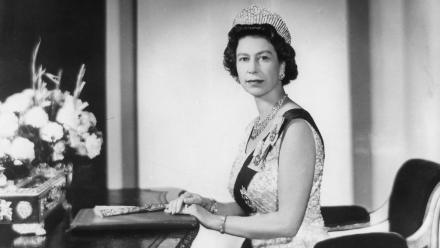Parties and politicians are now on notice.
Scott Morrison and Barnaby Joyce were the most unpopular leaders of any party since 1987, new analysis of the 2022 federal election from The Australian National University (ANU) shows.
The findings come from the joint ANUpoll/Comparative Study of Electoral Systems survey of more than 3,500 voters, which examined Australians' political attitudes before and after the 21 May vote.
Study co-author Professor Ian McAllister said the findings show leaders were more important than in previous elections.
"Our findings show both Scott Morrison and Barnaby Joyce were very unpopular, and both were especially not popular with their own voters," Professor McAllister said.
"We also found Labor leader and new Prime Minister Anthony Albanese was moderately popular across the electorate."
According to the findings, Scott Morrison suffered a major decline in popularity between 2019 and 2022, making him the most unpopular Liberal Party leader since 1987 - with a rating of 3.6 out of 10.
Barnaby Joyce was the most unpopular Nationals leader since 1987, with a rating of 3 out of 10.
"How the Coalition handled the COVID-19 pandemic was a major factor in determining their leaders' popularity among voters," Professor McAllister said.
"Voters were divided on how well the government handled the pandemic. However, negative perceptions about the pandemic were channelled through Morrison's leadership and were a major drag on the Coalition vote."
The study also examined the impact of the so-called Teal independent candidates on the election outcome.
"We found Teal voters appear to more likely be tactical Labor or Greens voters rather than dissatisfied Liberal voters," Professor McAllister said.
"Among Teal respondents, 35 per cent voted Labor in 2019, 23 per cent Green, and only 19 per cent had voted Liberal in 2019."
The study also took a deep dive into the policy issues that helped shape the election outcome and voters' decisions at the ballot box.
"We found there were four key policy areas where Coalition voters switched their allegiance this election," study co-author Professor Nicholas Biddle said.
"These include dealing with global climate change, improving disaster relief, improving the way the political system works in Australia, and addressing issues around race in this country.
"If the Labor Government is able to respond adequately to these policy areas that helped it win the election, then it will be very well placed to win the next federal election and consolidate major policy gains.
"If the Coalition opposition is able to turn the focus to the areas that helped it maintain its support, then the Albanese government may be lucky to win a second term."
Another key finding was policy played a significant role in determining how young people voted. PhD researcher Intifar Chowdhury said the youth vote was "especially powerful in Australia".
"Our findings shows young people are more inclined to cast their vote based on policy, rather than along partisan lines," she said.
"Millennials and Gen Z will make up about 44 per cent of the electorate in the future. This may lead to major generational replacement as the polls populate with more progressive, apartisan younger voters.
"Policy voting compared to partisan voting might become the norm in Australia. Parties and politicians are now on notice."
These findings and more are presented in a major symposium, Realignment or dealignment? Survey perspectives on the 2022 election, taking place at ANU on Friday 24 June.


